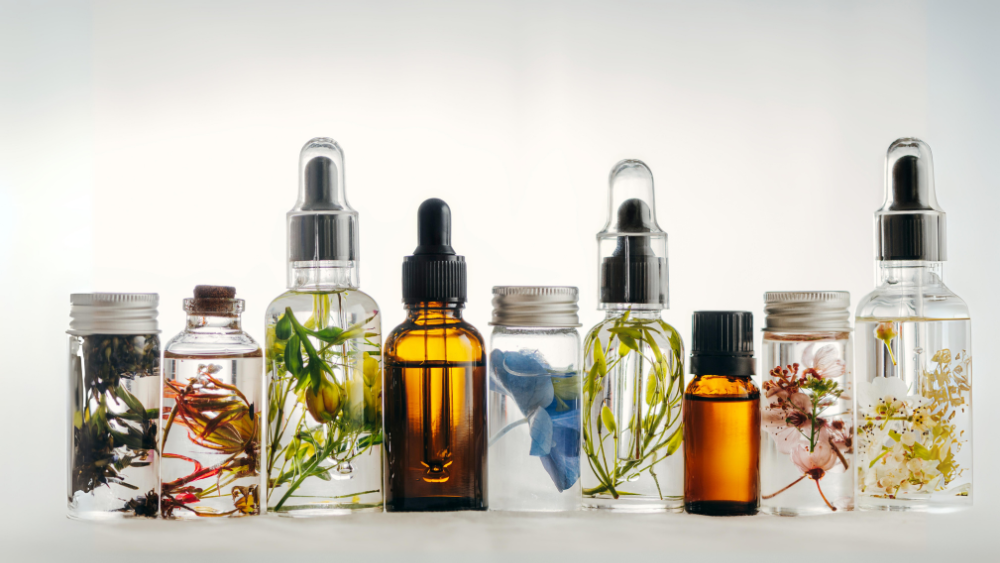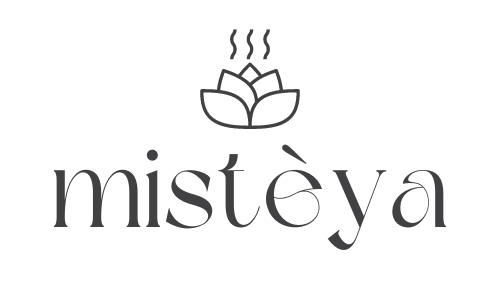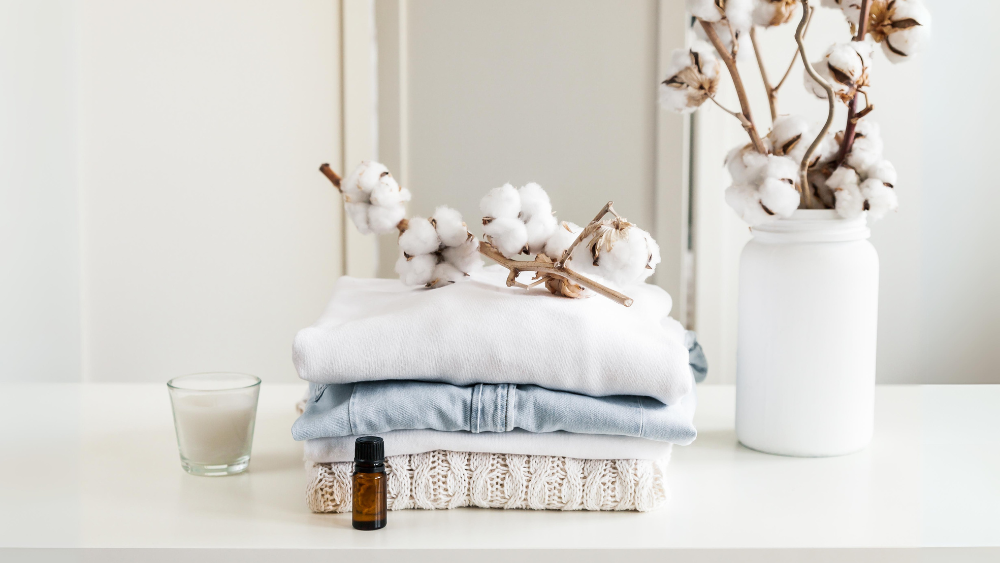
The Benefits of Essential Oils and How to Use Them
Essential oils have been used for centuries for their therapeutic and aromatic properties. Derived from various plants, these concentrated oils have recently gained popularity in both the wellness and beauty industries. Essential oils are known for their ability to support physical and mental health, promote relaxation, and enhance skin care routines. This blog will explore the many benefits of essential oils, as well as how they can be effectively and safely used in everyday life.
What Are Essential Oils?
Essential oils are highly concentrated plant extracts that capture the natural aroma and beneficial compounds of various plants. These oils are typically obtained from flowers, leaves, roots, seeds, and fruits. Each essential oil carries the essence of its source, including its fragrance and therapeutic properties, making them powerful tools for enhancing well-being.
Common Sources of Essential Oils
Essential oils are extracted from many plant parts. Some of the most common sources include:
- Flowers: Lavender, rose, jasmine, and chamomile oils are derived from flowers.
- Leaves: Eucalyptus, tea tree, and peppermint oils are obtained from the leaves of plants.
- Roots: Ginger and vetiver oils come from the roots of their respective plants.
- Seeds: Oils like fennel, anise, and carrot seed are produced from plant seeds.
How Essential Oils Are Made
The two most common methods of extracting essential oils are:
- Distillation: This involves heating the plant material to separate its essential oil through steam or water distillation. It is one of the most widely used methods.
- Cold Pressing: Primarily used for citrus oils like lemon, orange, and bergamot, cold pressing extracts oils by mechanically squeezing the plant material.
Both methods ensure the integrity of the oil’s active compounds, making the end product rich in natural benefits.
Health and Wellness Benefits of Essential Oils
Physical Health Benefits
Essential oils offer numerous benefits for physical health. Many oils contain anti-inflammatory, antifungal, and antimicrobial properties that can aid in healing and prevent infections. Some of the key physical health benefits include:
- Immune Support: Essential oils like oregano and eucalyptus can boost the immune system by combating harmful bacteria and viruses.
- Pain Relief: Peppermint, ginger, and lavender oils have analgesic properties, which help relieve muscle pain, headaches, and joint inflammation.
- Anti-Inflammatory Effects: Oils such as frankincense and tea tree have anti-inflammatory compounds that reduce swelling and irritation.
Mental Health Benefits
In addition to physical health, essential oils play an essential role in promoting mental and emotional well-being. Their ability to influence the brain's limbic system, which controls emotions, makes them powerful for stress relief and mood enhancement. Key mental health benefits include:
- Stress Reduction: Lavender and chamomile oils are well-known for reducing anxiety and calming the mind.
- Improved Sleep: Oils like lavender, valerian, and sandalwood are often used in aromatherapy to aid sleep and reduce insomnia.
- Mood Enhancement: Citrus oils, such as lemon and orange, can uplift mood and energize the body, combating feelings of depression or fatigue.
Skin Care and Beauty Benefits
Many essential oils contain properties that promote healthier, clearer skin. Some can reduce acne, brighten the complexion, and even provide anti-aging effects. Common skin care benefits of essential oils include:
- Acne Treatment: Tea tree oil is a natural antiseptic that helps reduce acne-causing bacteria on the skin.
- Anti-Aging Properties: Rosehip and frankincense oils are rich in antioxidants that can help reduce wrinkles and promote youthful skin.
- Moisturizing Effects: Oils such as jojoba and argan are deeply hydrating, making them excellent for dry skin care routines.
Popular Essential Oils and Their Benefits
Lavender Essential Oil
Lavender oil is one of the most popular and versatile essential oils used in aromatherapy. Known for its calming and relaxing properties, it can be applied to skin or inhaled to promote relaxation, reduce anxiety, and improve sleep. In addition to its mental health benefits, lavender is also used for:
- Skin Health: Its antiseptic and anti-inflammatory properties make it useful for treating minor burns, cuts, and skin irritations.
- Sleep Aid: Lavender oil is often added to pillows or diffused in bedrooms to promote deep and restful sleep.
- Pain Relief: It can help alleviate headaches and muscle pains when massaged into the skin.
Peppermint Essential Oil
Peppermint oil has a refreshing and invigorating aroma, making it an excellent choice for boosting energy and mental clarity. In addition to its stimulating scent, peppermint oil is used for:
- Headache Relief: Applying diluted peppermint oil to the temples can help relieve tension headaches and migraines.
- Digestive Support: Peppermint oil is widely used for its ability to relieve indigestion, bloating, and gas when inhaled or applied topically.
- Energy Boost: Its energizing scent helps combat fatigue and mental fog, making it perfect for a midday pick-me-up.
Tea Tree Oil
Tea tree oil is renowned for its powerful antimicrobial and anti-inflammatory properties, making it a popular choice for treating various skin conditions. It's commonly used for:
- Acne Treatment: Tea tree oil is effective at reducing acne, thanks to its antibacterial properties that help cleanse pores and prevent breakouts.
- Antifungal Benefits: It is often used to treat fungal infections like athlete’s foot, nail fungus, and ringworm.
- Wound Healing: Due to its ability to fight bacteria and reduce inflammation, tea tree oil is used to promote faster healing of cuts and scrapes.
Eucalyptus Oil
Eucalyptus oil is well-known for its powerful respiratory benefits. Its invigorating scent is often used in steam therapy to help relieve congestion and support respiratory health. Other uses include:
- Respiratory Support: Eucalyptus oil is commonly inhaled to clear nasal passages and reduce symptoms of colds, sinusitis, and asthma.
- Muscle Pain Relief: It has anti-inflammatory and analgesic properties that can be used to relieve sore muscles when massaged into the skin.
- Antimicrobial Properties: Eucalyptus oil is also used in natural cleaning products for its ability to kill bacteria and viruses.
Different Ways to Use Essential Oils
Aromatherapy
Aromatherapy is one of the most common ways to use essential oils. By diffusing oils into the air, you can enjoy their aromatic benefits, which can range from relaxation to improved focus. Here are a few common methods for aromatherapy:
- Diffusers: Electric or candle-powered diffusers release essential oil vapors into the air, allowing you to experience the oil’s scent and benefits throughout a room.
- Room Sprays: Create a simple room spray by mixing essential oils with water and spraying it in the air for a quick and easy refresh.
- Inhalation: Inhaling essential oils directly from the bottle or by adding a few drops to a tissue can help with respiratory issues or boost mood.
Topical Application
Essential oils can be applied directly to the skin for localized benefits such as pain relief or skin care. However, most essential oils should be diluted with a carrier oil (such as coconut, jojoba, or almond oil) to avoid irritation. Here’s how topical application is used:
- Skin Care: Oils like tea tree, lavender, and rosehip can be diluted and applied to the skin to treat acne, redness, and signs of aging.
- Pain Relief: Peppermint, eucalyptus, and ginger oils can be massaged into sore muscles or joints to relieve tension and reduce pain.
- Pulse Points: Applying essential oils to pulse points (wrists, neck, temples) allows for quick absorption and can help with stress or anxiety.
Inhalation and Steam Therapy
Inhalation and steam therapy are particularly effective for respiratory issues such as congestion, colds, and sinus infections. By inhaling steam infused with essential oils, you can open airways and ease breathing. Some popular uses include:
- Steam Therapy: Add a few drops of eucalyptus or peppermint oil to a bowl of hot water, place your face over it (with a towel over your head), and inhale deeply to clear nasal passages.
- Inhalers: Portable essential oil inhalers allow for easy, on-the-go use of essential oils for mental focus, relaxation, or respiratory support.


